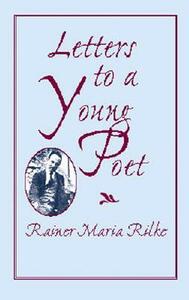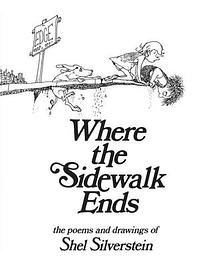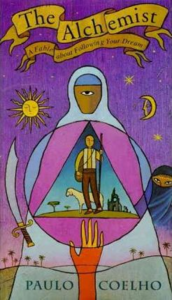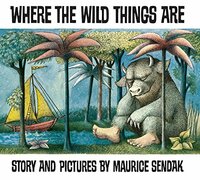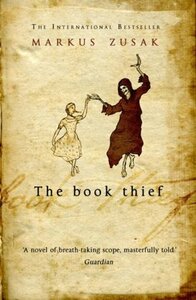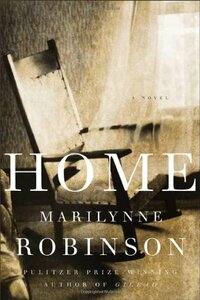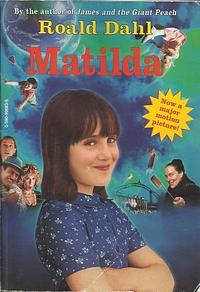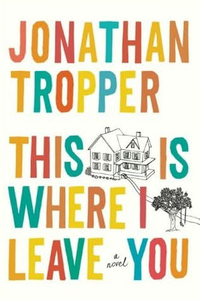Take a photo of a barcode or cover
jonscott9's Reviews (211)
Wertheim's a solid writer, period, and he makes any pro tennis storyline -- or match, as this fairly brief read is all about that more-than-classic '08 Wimbledon final, Roger Federer vs. Rafael Nadal -- immensely readable. The Ivy-educated lawyer turned sports scribe has an easy way with words, making his prose breezy and
It doesn't hurt when I'm passionate about the subject matter, either.
This book was ripe to be written, and few could have done it better. A couple of those who maybe could were advisers on the projects, according to LJW's acknowledgments at the end.
Ripe, why? Because Fed the Swiss and Rafa the Spaniard could not be more different and yet so similar at the same time. They had normal upbringings, were not exactly groomed for greatness so much as found it themselves, IN themselves, and proceeded to cultivate it because they (gasp) wanted to. There are no psychotic or abusive tennis parents in their histories, as with so many other great players.
But these guys are more than great. They are all-timers. In Fed's case, the nearly-inarguable GOAT (greatest of all time) now.
I did think Wertheim's prose about Federer got to be a bit too glowing and worshipful at times, and compared to Rafa's backstory and expounding -- and in light of the fact of who actually won this match. (This also makes the book's cover art a bit strange -- sure, Rafa was the relative upstart and the underdog, but does Federer really have to loom like a specter over the cover, as if it's Luke Skywalker taking on the Emperor? Well, then again, maybe it was something like that.)
Wertheim's thesis on why Federer isn't more popular stateside is also interesting, makes sense. Will let you read about that for yourself. And do pick this up, as, again, it's simple and speedy and informative all at once.
The Sports Illustrated writer does a solid job of keeping some suspense in these pages as he goes set by set and nearly shot by shot (really) through the match. Kudos to him for the job done, in light of the fact that every reader already knows what happened, ultimately.
Interesting stories about that fateful match's chair umpire also, and tidbits along the way about how Venus Williams regarded the match as she waited to head to the champions' ball herself, and about the two tennis gladiators' parents.
I found the childhoods and formative years of these two (super)human beings to be fascinating, and as that's usual the part of any (auto)biography that I find most compelling. You can tell a lot about who people came to be or presently are by where they've been, what's happened to date. "So much past inside my present," as one songstress put it.
It doesn't hurt when I'm passionate about the subject matter, either.
This book was ripe to be written, and few could have done it better. A couple of those who maybe could were advisers on the projects, according to LJW's acknowledgments at the end.
Ripe, why? Because Fed the Swiss and Rafa the Spaniard could not be more different and yet so similar at the same time. They had normal upbringings, were not exactly groomed for greatness so much as found it themselves, IN themselves, and proceeded to cultivate it because they (gasp) wanted to. There are no psychotic or abusive tennis parents in their histories, as with so many other great players.
But these guys are more than great. They are all-timers. In Fed's case, the nearly-inarguable GOAT (greatest of all time) now.
I did think Wertheim's prose about Federer got to be a bit too glowing and worshipful at times, and compared to Rafa's backstory and expounding -- and in light of the fact of who actually won this match. (This also makes the book's cover art a bit strange -- sure, Rafa was the relative upstart and the underdog, but does Federer really have to loom like a specter over the cover, as if it's Luke Skywalker taking on the Emperor? Well, then again, maybe it was something like that.)
Wertheim's thesis on why Federer isn't more popular stateside is also interesting, makes sense. Will let you read about that for yourself. And do pick this up, as, again, it's simple and speedy and informative all at once.
The Sports Illustrated writer does a solid job of keeping some suspense in these pages as he goes set by set and nearly shot by shot (really) through the match. Kudos to him for the job done, in light of the fact that every reader already knows what happened, ultimately.
Interesting stories about that fateful match's chair umpire also, and tidbits along the way about how Venus Williams regarded the match as she waited to head to the champions' ball herself, and about the two tennis gladiators' parents.
I found the childhoods and formative years of these two (super)human beings to be fascinating, and as that's usual the part of any (auto)biography that I find most compelling. You can tell a lot about who people came to be or presently are by where they've been, what's happened to date. "So much past inside my present," as one songstress put it.
Was not whelmed by this. Maybe lost in translation a bit, from the German. And maybe just not the right timing, you know? Happens.
Interesting thoughts at times on relationships and love, and on loneliness and the solitary life, which is to say, the life of a writer. Didn't agree with all of those thoughts, and it seems Rilke sort of worshiped the solitary life, exalted it. It got to be a bit cloying.
Just too much of it was esoteric, between Rilke and the young poet, and those pieces take the reader out of the letters. And sometimes Rilke just seemed a bit smug, a bit in love with his own words.
I do dig the idea of "living and writing in heat." Vivid.
some shards I did quite like:
"Go into yourself. Search for the reason that bids you write; find out whether it is spreading out its roots in the deepest places of your heart, acknowledge to yourself whether you would have to die if it were denied you to write. This above all--ask yourself in the stillest hour of your night: must I write?"
"[B:]e patient toward all that is unsolved in your heart and to try to love the questions themselves like locked rooms and like books that are written in a very foreign tongue. Do not now seek the answers, which cannot be given you because you would not be able to live them. And the point is, to live everything. Live the questions now. Perhaps you will then gradually, without noticing it, live along some distant day into the answers."
"Do not observe yourself too much. Do not draw too hasty conclusions from what happens to you; let it simply happen to you. ... Let life happen to you. Believe me: life is right, in any case."
"And if there is one thing more that I must say to you, it is this: Do not believe that he who seeks to comfort you lives untroubled among the simple and quiet words that sometimes do you good. His life has much difficulty and sadness and remains far behind yours. Were it otherwise he would never have been able to find those words."
Interesting thoughts at times on relationships and love, and on loneliness and the solitary life, which is to say, the life of a writer. Didn't agree with all of those thoughts, and it seems Rilke sort of worshiped the solitary life, exalted it. It got to be a bit cloying.
Just too much of it was esoteric, between Rilke and the young poet, and those pieces take the reader out of the letters. And sometimes Rilke just seemed a bit smug, a bit in love with his own words.
I do dig the idea of "living and writing in heat." Vivid.
some shards I did quite like:
"Go into yourself. Search for the reason that bids you write; find out whether it is spreading out its roots in the deepest places of your heart, acknowledge to yourself whether you would have to die if it were denied you to write. This above all--ask yourself in the stillest hour of your night: must I write?"
"[B:]e patient toward all that is unsolved in your heart and to try to love the questions themselves like locked rooms and like books that are written in a very foreign tongue. Do not now seek the answers, which cannot be given you because you would not be able to live them. And the point is, to live everything. Live the questions now. Perhaps you will then gradually, without noticing it, live along some distant day into the answers."
"Do not observe yourself too much. Do not draw too hasty conclusions from what happens to you; let it simply happen to you. ... Let life happen to you. Believe me: life is right, in any case."
"And if there is one thing more that I must say to you, it is this: Do not believe that he who seeks to comfort you lives untroubled among the simple and quiet words that sometimes do you good. His life has much difficulty and sadness and remains far behind yours. Were it otherwise he would never have been able to find those words."
Relished this, tho' I can't recall if it's my first time or a re-read. A couple rang familiar. Quirky, thoughtful, fun, poignant -- often all of these things at once.
There were maybe just 2-3 of the tens of poems in this collection that I thought fell flat or were just way too precious or earnest. As for the rest, I can see how kids would be spellbound by these tiny tales. There's a whole lot of head and heart both here.
I like how the drawings in the book feed off of the words, and vice versa. Sometimes the poems were housed *in* the drawings.
+ those that I really enjoyed or loved:
Invitation, Hug O' War, Listen to the Mustn'ts, Sick, Snowman, The Crocodile's Toothache, Lester, Drats, My Rules, No Difference, Ma and God, Skinny, The Land of Happy, Pirate Captain Jim, Fish?, Forgotten Language, and Just Me, Just Me
just a sampling:
FORGOTTEN LANGUAGE
Once I spoke the language of the flowers,
Once I understood each word the caterpillar said,
Once I smiled in secret at the gossip of the starlings,
And shared a conversation with the housefly
in my bed.
Once I heard and answered all the questions
of the crickets,
And joined the crying of each falling dying
flake of snow,
Once I spoke the language of the flowers....
How did it go?
How did it go?
___________
JUST ME, JUST ME
Sweet Marie, she loves just me
(She also loves Maurice McGhee).
No she don't, she loves just me
(She also loves Louise Dupree).
No she don't, she loves just me
(She also loves the willow tree).
No she don't, she loves just me!
(Poor, poor fool, why can't you see
She can love others and still love thee.)
There were maybe just 2-3 of the tens of poems in this collection that I thought fell flat or were just way too precious or earnest. As for the rest, I can see how kids would be spellbound by these tiny tales. There's a whole lot of head and heart both here.
I like how the drawings in the book feed off of the words, and vice versa. Sometimes the poems were housed *in* the drawings.
+ those that I really enjoyed or loved:
Invitation, Hug O' War, Listen to the Mustn'ts, Sick, Snowman, The Crocodile's Toothache, Lester, Drats, My Rules, No Difference, Ma and God, Skinny, The Land of Happy, Pirate Captain Jim, Fish?, Forgotten Language, and Just Me, Just Me
just a sampling:
FORGOTTEN LANGUAGE
Once I spoke the language of the flowers,
Once I understood each word the caterpillar said,
Once I smiled in secret at the gossip of the starlings,
And shared a conversation with the housefly
in my bed.
Once I heard and answered all the questions
of the crickets,
And joined the crying of each falling dying
flake of snow,
Once I spoke the language of the flowers....
How did it go?
How did it go?
___________
JUST ME, JUST ME
Sweet Marie, she loves just me
(She also loves Maurice McGhee).
No she don't, she loves just me
(She also loves Louise Dupree).
No she don't, she loves just me
(She also loves the willow tree).
No she don't, she loves just me!
(Poor, poor fool, why can't you see
She can love others and still love thee.)
A wonderfully and simply told children's story that every grown person should read.
"My heart is afraid that it will have to suffer," the boy told the alchemist one night as they looked up at the moonless sky.
"Tell your heart that the fear of suffering is worse than the suffering itself. And that no heart has ever suffered when it goes in search of its dreams."
"My heart is afraid that it will have to suffer," the boy told the alchemist one night as they looked up at the moonless sky.
"Tell your heart that the fear of suffering is worse than the suffering itself. And that no heart has ever suffered when it goes in search of its dreams."
Hadn't seen this since I was 6 "...and it was still hot."
Mesmerizing little story, engaging pictures. I'll take this over the Eggers novel or the tragically hip indie film (directed by Jonze, replete with Karen O-spearheaded soundtrack) any day.
I love the tale of a boy confined to his room who decides to go somewhere else, if in his head. I can actually recall this book launching a thousand imaginative ships in my own noggin back in the day.
Hope it doesn't land me in my room without dinner, but I firmly intend to say to someone this week, "I'LL EAT YOU UP!"
Mesmerizing little story, engaging pictures. I'll take this over the Eggers novel or the tragically hip indie film (directed by Jonze, replete with Karen O-spearheaded soundtrack) any day.
I love the tale of a boy confined to his room who decides to go somewhere else, if in his head. I can actually recall this book launching a thousand imaginative ships in my own noggin back in the day.
Hope it doesn't land me in my room without dinner, but I firmly intend to say to someone this week, "I'LL EAT YOU UP!"
"He took from his pocket a photograph of the corpse. The face had that odd, disembodied look which even in a photograph tells you that the person is dead. This is the greatest argument in favour of the soul that I can think of. When people are alive, even if they are gravely ill and in a coma, there is still something in their faces, some tension, some spark. Probably a doctor could explain it to me, could give a reason, something to do with rigor mortis or the configuration of the muscles, I don't know, but a dead person is undoubtedly and unmistakably dead, even in a photograph."
This mannered supernatural thriller was originally conceived of and penned as part of a 1994 competition in London, to write a novel in 24 hours under exam conditions. (What fun, right? What a rush. The intense pressure. I want some!)
Maggie Hamand later expounded on it, not really changing or editing anything but adding to so as to make it, well, all of 200 pages -- my kind of book size. The original version was but 23,000 words.
The cover art and the length make it seem "young adult-y," as someone snidely told me upon seeing it, but it's not. And even if it was, well, The Book Thief was a YA read, and astonishing.
That's not to say this book is astonishing. It's certainly food for thought, and I enjoyed the read as the calendar ramped up to Easter. It's also decidedly British, in its proper way of going about the machinations of a thriller, in its dialogue and settings and ruminations.
It centers on Richard, a parish victor, and his doubts about belief and such in the wake of a murder just outside (or in the foyer of) his church on Good Friday. The victim staggered into the midst of the church service even -- of course horrifying everyone -- and his body later disappears from the morgue. Richard and some of his parishioners think they see the man in the days and weeks that follow, as a gardener in a local park. Is he a specter? Is Richard going insane? He is certainly in the process of losing his faith, and doesn't truly believe in the physical resurrection -- or miracles, period. He writes a letter in his parish magazine that the author includes as part of her text that is beautiful and honest.
I found myself identifying with Richard a lot. Also interesting that his wife Harriet was agnostic. Their exchanges and love were refreshing to read, made me think of what the marriages in Annie Dillard's The Living or The Maytrees must be like, if I could just finally get to those books too.
The locations in the book are real, and as Richard sets out to the park, or to a certain parish, to the morgue or St. Bart's hospital or London Fields, the action makes me think of all the scampering from place to place in G.K. Chesterton's supernatural chase thriller, The Man Who Was Thursday. This book comes without that one's genius baggage, surely, but it's fun, nonetheless. I would have liked it if Hitchcock could have filmed something like this, but the mind's eye is so often better than a book captured on (caged in?) film.
Recommended for anyone who digs thrillers and thoughts on the stuff of God, and who isn't offended by a little sex and choice words.
This mannered supernatural thriller was originally conceived of and penned as part of a 1994 competition in London, to write a novel in 24 hours under exam conditions. (What fun, right? What a rush. The intense pressure. I want some!)
Maggie Hamand later expounded on it, not really changing or editing anything but adding to so as to make it, well, all of 200 pages -- my kind of book size. The original version was but 23,000 words.
The cover art and the length make it seem "young adult-y," as someone snidely told me upon seeing it, but it's not. And even if it was, well, The Book Thief was a YA read, and astonishing.
That's not to say this book is astonishing. It's certainly food for thought, and I enjoyed the read as the calendar ramped up to Easter. It's also decidedly British, in its proper way of going about the machinations of a thriller, in its dialogue and settings and ruminations.
It centers on Richard, a parish victor, and his doubts about belief and such in the wake of a murder just outside (or in the foyer of) his church on Good Friday. The victim staggered into the midst of the church service even -- of course horrifying everyone -- and his body later disappears from the morgue. Richard and some of his parishioners think they see the man in the days and weeks that follow, as a gardener in a local park. Is he a specter? Is Richard going insane? He is certainly in the process of losing his faith, and doesn't truly believe in the physical resurrection -- or miracles, period. He writes a letter in his parish magazine that the author includes as part of her text that is beautiful and honest.
I found myself identifying with Richard a lot. Also interesting that his wife Harriet was agnostic. Their exchanges and love were refreshing to read, made me think of what the marriages in Annie Dillard's The Living or The Maytrees must be like, if I could just finally get to those books too.
The locations in the book are real, and as Richard sets out to the park, or to a certain parish, to the morgue or St. Bart's hospital or London Fields, the action makes me think of all the scampering from place to place in G.K. Chesterton's supernatural chase thriller, The Man Who Was Thursday. This book comes without that one's genius baggage, surely, but it's fun, nonetheless. I would have liked it if Hitchcock could have filmed something like this, but the mind's eye is so often better than a book captured on (caged in?) film.
Recommended for anyone who digs thrillers and thoughts on the stuff of God, and who isn't offended by a little sex and choice words.
What's not to love about this tale of an illiterate 9-year-old girl Liesel stealing books in Nazi Germany, eventually learning with the aid of her foster father to read and write, and then to do both increasingly well?
Need I mention the narrator here is Death himself? Yes. He makes for a quip-tastic observer who alternately looks on fondly at these mere mortals, Jews and/or Germans, and on the same page is prone to whisk away their souls (light or heavy, depending on the person's goodness). Admittedly, a couple times in the middle here, the narrator's side notes and quips, Death's voice, yanked me up and out of the story and into the realization that this was but a bleak fiction, Liesel's life. I did not dig that. Distracting.
Heady, clever prose here from the boyish Aussie Zusak, himself the son of German immigrants. The story sings, and the book breezes by at 550 pages paperback. A notoriously slow reader, I pounded this one in a week and a half.
Some images will endure in my mind. Thank you, author. Thank you, words. Rudy Steiner is an anti-hero for the ages; the image is burned behind my eyes of him holding a retrieved book aloft, triumphantly, as he stands in the middle of a freezing river. Hans Hubermann ("Papa") is the German wartime version of Atticus Finch, seemingly perfect in every way. His wife Rosa ("Mama") and the street-soccer kids gave me quite a few Deutsch names and taunts ("Arschgrobbler" = ass scratcher) for future use. The still image of tough-as-nails Rosa snoring upright in a chair in the dark, her husband's beloved accordion strapped to her chest, made me want to weep.
Weird to see the Allied forces of WWII as makeshift bad guys as they relate to this tale. Strange also to find myself inserting my own maternal grandparents into the roles and faces of Hans and Rosa H. Makes sense, though: Their shack at 33 Himmel Street outside Munich reminded me of my grands' double-wide trailer in southern Indiana. Their personalities matched those of Paul (Hans) and Eileen (Rosa) to a T. My grandparents are Wagoners. Wagners. Germans. This made it all the harder -- dare I say, more emotional -- when I realized I may have to let go of the Hubermanns in this story.
Finishing a book feels like a breakup, like the end of a relationship. I sometimes hate it, thus I don't read quickly and read the last 10 pages and especially the last 10 lines at snail's pace. The epilogue ending seemed fitting. It was as it should be. Perhaps it was as it could only be.
As represented here, the Fuhrer himself (Hitler) reminded me of the Anton Chigurh character from the 2007 film No Country for Old Men for how, despite not appearing in every (any) scene, his awful presence is felt in every word and deed performed. What a small man. What an outsized story, a sprawling imagination in an author so young.
Need I mention the narrator here is Death himself? Yes. He makes for a quip-tastic observer who alternately looks on fondly at these mere mortals, Jews and/or Germans, and on the same page is prone to whisk away their souls (light or heavy, depending on the person's goodness). Admittedly, a couple times in the middle here, the narrator's side notes and quips, Death's voice, yanked me up and out of the story and into the realization that this was but a bleak fiction, Liesel's life. I did not dig that. Distracting.
Heady, clever prose here from the boyish Aussie Zusak, himself the son of German immigrants. The story sings, and the book breezes by at 550 pages paperback. A notoriously slow reader, I pounded this one in a week and a half.
Some images will endure in my mind. Thank you, author. Thank you, words. Rudy Steiner is an anti-hero for the ages; the image is burned behind my eyes of him holding a retrieved book aloft, triumphantly, as he stands in the middle of a freezing river. Hans Hubermann ("Papa") is the German wartime version of Atticus Finch, seemingly perfect in every way. His wife Rosa ("Mama") and the street-soccer kids gave me quite a few Deutsch names and taunts ("Arschgrobbler" = ass scratcher) for future use. The still image of tough-as-nails Rosa snoring upright in a chair in the dark, her husband's beloved accordion strapped to her chest, made me want to weep.
Weird to see the Allied forces of WWII as makeshift bad guys as they relate to this tale. Strange also to find myself inserting my own maternal grandparents into the roles and faces of Hans and Rosa H. Makes sense, though: Their shack at 33 Himmel Street outside Munich reminded me of my grands' double-wide trailer in southern Indiana. Their personalities matched those of Paul (Hans) and Eileen (Rosa) to a T. My grandparents are Wagoners. Wagners. Germans. This made it all the harder -- dare I say, more emotional -- when I realized I may have to let go of the Hubermanns in this story.
Finishing a book feels like a breakup, like the end of a relationship. I sometimes hate it, thus I don't read quickly and read the last 10 pages and especially the last 10 lines at snail's pace. The epilogue ending seemed fitting. It was as it should be. Perhaps it was as it could only be.
As represented here, the Fuhrer himself (Hitler) reminded me of the Anton Chigurh character from the 2007 film No Country for Old Men for how, despite not appearing in every (any) scene, his awful presence is felt in every word and deed performed. What a small man. What an outsized story, a sprawling imagination in an author so young.
It's important to note that this novel is not a sequel (nor a prequel) to Robinson's glorious Gilead. It's rather a companion book, with a story that could have happened concurrently with that of Gilead.
More poetry masquerading as prose from Robinson, a master of letters. This one's not as taut top to bottom as Gilead, but it's beautiful, nonetheless, revolving this time around John Ames's friend Boughton, and his daughter Glory and some-kind-of-prodigal son Jack. It's mostly about Glory and Jack, in all their wounded sibling interplay.
Robinson is deft at writing and describing dialogue. Lengthy, believable, unadorned conversations. Convos that matter and that are striking for how simple they are.
This book is stirring. Flat-out stirring. It's not exactly plot-tastic, but that's common with her books. Like Gilead and Housekeeping, you have to drink these words slowly, although not quite like those two. This one can read more quickly.
The last 8-10 pages were especially poignant, and the story ended in the only way it probably could. Ah! So much sadness and pain and light and beauty!
More poetry masquerading as prose from Robinson, a master of letters. This one's not as taut top to bottom as Gilead, but it's beautiful, nonetheless, revolving this time around John Ames's friend Boughton, and his daughter Glory and some-kind-of-prodigal son Jack. It's mostly about Glory and Jack, in all their wounded sibling interplay.
Robinson is deft at writing and describing dialogue. Lengthy, believable, unadorned conversations. Convos that matter and that are striking for how simple they are.
This book is stirring. Flat-out stirring. It's not exactly plot-tastic, but that's common with her books. Like Gilead and Housekeeping, you have to drink these words slowly, although not quite like those two. This one can read more quickly.
The last 8-10 pages were especially poignant, and the story ended in the only way it probably could. Ah! So much sadness and pain and light and beauty!
Memorable characters, a couple of them moving in their depictions.
A solid send-up of everyone's reliance on the "telly" for entertainment vs. reading a book in one's hands. Basically an indictment of TV.
The list of Matilda the wunderkind's books read by 1st-grade age had me depressed. I haven't read some of those yet (Austen, the tortured Russian novelists).
A couple funny quips early about teacher-student relations and homework.
A fun, easy read, as a children's book *better be* at this point(!).
I'd have liked it better, but I imagined a better ending than the completely satisfying and yet action-lacking denouement. I'd thought my 4th grade teacher read this to the class in the day, and that the ending involved Matilda, in typical morbid Dahl-esque fashion, ending the treacherous reign of her school's headmistress, Miss Trunchbull, thus saving herself, her beloved teacher Ms. Honey, and everyone else. I thought this even took place by Matilda, who has powers to make objects move, coordinating some knives to fly at the Trunchbull and end her. Maybe I misremember this or am thinking of another kids' read (although what would that be?). Maybe I just saw Stephen King's Carrie too much.
I honestly probably wouldn't have picked it up again had I known the ending.
Whatever. In the end, classic Dahl.
A solid send-up of everyone's reliance on the "telly" for entertainment vs. reading a book in one's hands. Basically an indictment of TV.
The list of Matilda the wunderkind's books read by 1st-grade age had me depressed. I haven't read some of those yet (Austen, the tortured Russian novelists).
A couple funny quips early about teacher-student relations and homework.
A fun, easy read, as a children's book *better be* at this point(!).
I'd have liked it better, but I imagined a better ending than the completely satisfying and yet action-lacking denouement. I'd thought my 4th grade teacher read this to the class in the day, and that the ending involved Matilda, in typical morbid Dahl-esque fashion, ending the treacherous reign of her school's headmistress, Miss Trunchbull, thus saving herself, her beloved teacher Ms. Honey, and everyone else. I thought this even took place by Matilda, who has powers to make objects move, coordinating some knives to fly at the Trunchbull and end her. Maybe I misremember this or am thinking of another kids' read (although what would that be?). Maybe I just saw Stephen King's Carrie too much.
I honestly probably wouldn't have picked it up again had I known the ending.
Whatever. In the end, classic Dahl.
Utterly enjoyable and fast novel about an effed-up family and all their hijinks as they sit shiva for seven days in honor of their deceased patriarch, who did and didn't love them as they wanted and needed.
This is absurd. This is no family on earth. And this is every family.
Some laugh-out-loud moments, much appreciated, and some touching, stirring, and poignant ones. Some truly pathetic or stupid or mean ones too. Mmm. Yep. Nailed it: the American family, for better or worse, 'til death do we part.
You can choose your friends. You can't choose your blood. That's the bulk of what this book's about. Pity poor Judd Foxman. His wife's pregnant with his child but is divorcing him after taking up with his boss, a prickly shock jock who no one likes save Judd's wife, inexplicably.
Tragic stuff embedded in this one. And yet. A shit-ton of screwball familial and romantic love. Nothing earth-shattering here, but some very well-put passages, a penchant for referencing cultural artifacts (music!) reminiscent of Nick Hornby, and a fresh, breezy voice. Glad for it.
This is absurd. This is no family on earth. And this is every family.
Some laugh-out-loud moments, much appreciated, and some touching, stirring, and poignant ones. Some truly pathetic or stupid or mean ones too. Mmm. Yep. Nailed it: the American family, for better or worse, 'til death do we part.
You can choose your friends. You can't choose your blood. That's the bulk of what this book's about. Pity poor Judd Foxman. His wife's pregnant with his child but is divorcing him after taking up with his boss, a prickly shock jock who no one likes save Judd's wife, inexplicably.
Tragic stuff embedded in this one. And yet. A shit-ton of screwball familial and romantic love. Nothing earth-shattering here, but some very well-put passages, a penchant for referencing cultural artifacts (music!) reminiscent of Nick Hornby, and a fresh, breezy voice. Glad for it.

